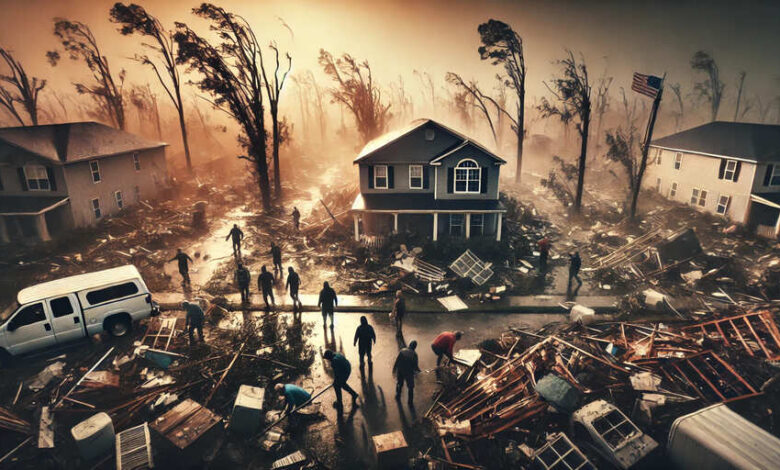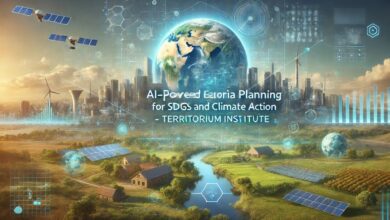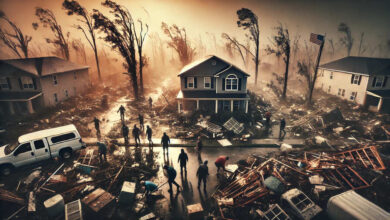Hurricanes and Climate Action Topical Authority for Citizens-SDGIEVER

- Pillar Content: Climate Change, Hurricanes, and You – Why Helene, Milton, and COP 29 Matter
- Cluster 1: Hurricanes Helene and Milton – Why You Should Care
- Cluster 2: What Is COP 29 and Why Does It Matter to You?
- Cluster 3: How Hurricanes Like Helene and Milton Affect Your Daily Life
- Cluster 4: What You Can Do to Combat Climate Change in Your Daily Life
- Cluster 5: The Connection Between Climate Change and Extreme Weather
- Cluster 6: The Role of Local Governments and Communities in Climate Action
- Conclusion: Connecting Citizens to the Urgency of Climate Action
I understand that you want to simplify and reframe the content so that it appeals specifically to the general public, making it relatable and engaging for citizens, homeowners, and individuals rather than professionals or policy makers. The key here is to focus on everyday impacts, personal stories, and actions individuals can take to contribute to climate action while still highlighting the significance of COP 29 and the recent disasters—Helene and Milton.
Here’s a revised cluster structure that makes the topics more accessible to the public, while still maintaining the focus on COP 29 and how these massive hurricanes represent the growing impact of climate change on people’s daily lives.
Pillar Content: Climate Change, Hurricanes, and You – Why Helene, Milton, and COP 29 Matter
This central pillar will explain what COP 29 is in an easy-to-understand way, and how these major climate events (Helene and Milton) fit into the global climate change conversation. The focus is on how these big events relate to the daily lives of individuals and why the public should care.
- COP 29 Explained: What It Means for You and Why It’s Important
- Helene and Milton: What We Can Learn from Two of the Strongest Hurricanes in Recent History
- How Climate Change is Making Hurricanes Like Helene and Milton More Dangerous
- The Real Cost of Hurricanes Helene and Milton: What Happens When You’re Uninsured
- What Can You Do About Climate Change? Actions You Can Take Before COP 29
These pillar articles will serve as the foundation for the more detailed cluster topics below.
Cluster 1: Hurricanes Helene and Milton – Why You Should Care
In this cluster, the focus is on telling personal stories and showing how ordinary people were impacted by the destruction caused by Helene and Milton. This will help the general public connect emotionally to the issue and understand why climate action matters.
- “We Lost Everything”: Real Stories from People Hit Hard by Hurricane Helene
- What Would You Do? How to Prepare for a Hurricane Like Helene or Milton
- Why Are Hurricanes Getting Worse? How Helene and Milton Prove Climate Change is Real
- Homeowners and Hurricanes: What to Know About Insurance After Disasters Like Milton
- Can Your Home Survive a Hurricane? How to Make Your Home Climate-Resilient
- “I Wasn’t Ready”: How Uninsured Families Are Still Recovering from Hurricane Helene
- Could a Hurricane Like Helene Happen Near You? Understanding Your Local Risk
- Why It Costs So Much to Rebuild After Hurricanes Like Helene and Milton
- How to Protect Your Family from Future Hurricanes as Strong as Helene
- Why We Need to Talk About Climate Change Now: Lessons from Milton and Helene
Cluster 2: What Is COP 29 and Why Does It Matter to You?
This cluster simplifies the importance of COP 29 by relating it to the everyday lives of citizens. Focus on making the international climate summit relevant to the challenges that individuals face in their own communities, like extreme weather, rising energy costs, or increasing insurance premiums due to climate risks.
- COP 29 for Beginners: What Is It and Why Does It Matter to You?
- How COP 29 Could Help Prevent Future Hurricanes Like Helene and Milton
- Why the Decisions Made at COP 29 Could Affect Your Home and Wallet
- What Would Happen If World Leaders Ignored Climate Change? A Look at COP 29
- How COP 29 Will Try to Tackle Stronger Storms and Rising Temperatures
- COP 29: What You Need to Know and Why It’s Important for Your Community
- What Can You Do to Support COP 29? Small Actions That Make a Big Difference
- Why Hurricanes Like Helene Are Getting Worse and What COP 29 Plans to Do About It
- How to Follow COP 29 and Get Involved in the Fight Against Climate Change
- How COP 29 Could Lead to Changes in Your Neighborhood’s Climate Policy
Cluster 3: How Hurricanes Like Helene and Milton Affect Your Daily Life
This cluster highlights how climate disasters like Helene and Milton are not just extreme events but part of a growing trend of everyday impacts on individuals’ homes, finances, and lifestyles. The articles will focus on practical, relatable impacts such as home insurance, rising utility bills, and personal safety.
- How Hurricanes Like Helene Affect Your Home Insurance Premiums
- What to Do if Your Home is at Risk of Flooding: Tips for Homeowners
- How to Make Your Home More Resilient Against Stronger Storms
- What Would Happen to Your Town if a Hurricane Like Milton Hit?
- The Hidden Costs of Climate Change: Why Hurricanes Make Everything More Expensive
- How to Prepare for Future Hurricanes and Save Money on Insurance
- Why Rising Sea Levels Could Threaten Your Home – Lessons from Helene
- How to Protect Your Family from Hurricanes: Safety Tips from Helene Survivors
- What Should You Do If a Hurricane is Headed Your Way?
- Why Climate Change is Making Everyday Weather More Dangerous
Cluster 4: What You Can Do to Combat Climate Change in Your Daily Life
This cluster focuses on actionable advice for the public. It shows how small lifestyle changes can contribute to the global fight against climate change, while connecting these actions to COP 29 and the broader need for climate action to prevent disasters like Helene and Milton.
- How Small Changes at Home Can Help Fight Climate Change
- Easy Ways to Reduce Your Carbon Footprint Before COP 29
- Why Switching to Renewable Energy Can Protect You from Rising Costs
- How to Cut Down on Energy Bills and Help Fight Climate Change
- What You Can Do to Support Climate Action Ahead of COP 29
- Simple Tips to Make Your Home More Eco-Friendly
- How to Save Water and Energy at Home (and Save Money Too)
- Why Buying Local Foods Can Help Fight Climate Change
- How to Get Your Kids Involved in Protecting the Planet
- The Best Eco-Friendly Products to Use in Your Daily Life
Cluster 5: The Connection Between Climate Change and Extreme Weather
This cluster explains, in simple terms, how climate change is making extreme weather events like Helene and Milton more common. It helps the public understand why these hurricanes are so destructive and what can be done to slow the progress of climate change.
- What is Climate Change and Why Does It Make Hurricanes Worse?
- How Warmer Oceans Fuel Hurricanes Like Helene and Milton
- What Rising Sea Levels Mean for People Living Near the Coast
- Why Are Hurricanes Like Helene Getting More Destructive?
- How Climate Change is Making Weather More Extreme Around the World
- Can We Stop Hurricanes from Getting Worse? What Science Tells Us
- Why Global Warming is Making Floods and Storm Surges Worse
- What You Need to Know About the Link Between Climate Change and Storms
- Why Hurricanes Like Milton Are a Warning About the Future of Climate Change
- How Climate Change is Already Affecting Your Weather and What You Can Do About It
Cluster 6: The Role of Local Governments and Communities in Climate Action
This cluster shows the general public how local governments and community actions play a crucial role in climate resilience. It also explains how individuals can get involved at the local level to push for changes that align with COP 29 objectives and help prevent disasters like Helene and Milton.
- How Your Local Government Can Help Prepare for Hurricanes Like Helene
- How to Advocate for Stronger Climate Policies in Your Town
- Why Local Climate Action Matters and How to Get Involved
- How to Make Your Community More Resilient Against Climate Disasters
- What Your City Can Do to Protect Against Hurricanes Like Milton
- How to Join or Start a Local Climate Action Group
- Why Your Voice Matters in the Fight Against Climate Change
- What Communities Can Learn from Helene and Milton’s Destruction
- How to Help Your Neighbors Prepare for Climate Disasters
- What You Can Do to Support Climate Action in Your Local Schools
Conclusion: Connecting Citizens to the Urgency of Climate Action
By reframing the COP 29, Helene, and Milton narratives to appeal directly to the general public, you create content that is engaging, actionable, and relatable. The focus shifts from technical jargon and policy frameworks to personal stories, community impacts, and everyday actions that individuals can take.
This strategy will not only raise awareness about the urgency of climate change but also help people understand how COP 29, as a global event, connects to their daily lives and the steps they can take to contribute to a sustainable future.




